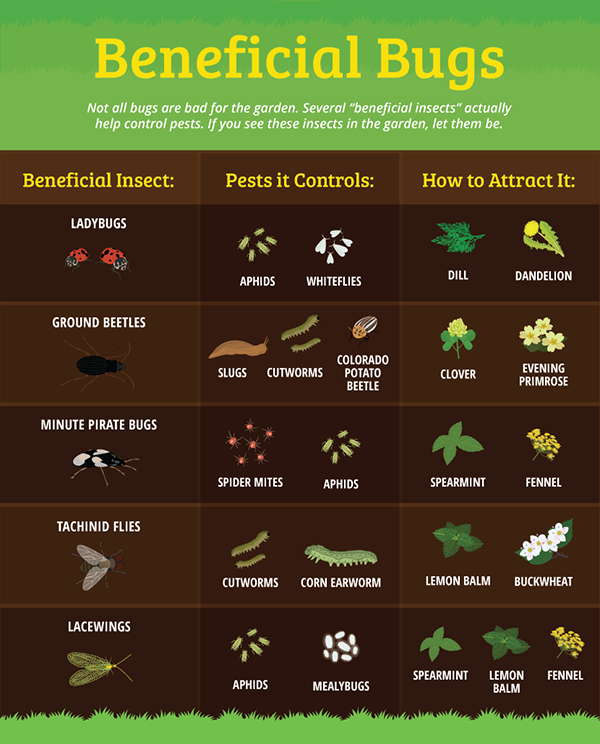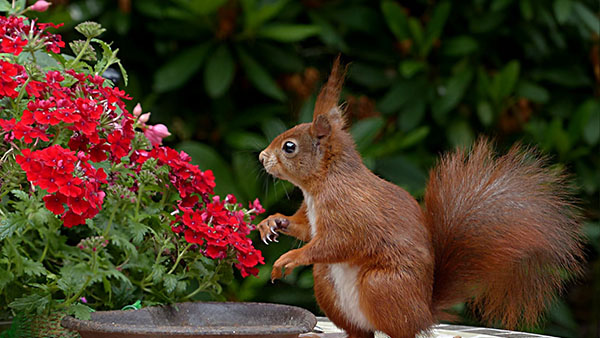By Jodi Helmer
Guest Writer
 You’re not the only one enjoying the garden this summer. Chances are good that aphids, gnats, rabbits, and deer also love your lush annuals, perennials, vegetables, and herbs.
You’re not the only one enjoying the garden this summer. Chances are good that aphids, gnats, rabbits, and deer also love your lush annuals, perennials, vegetables, and herbs.
Watching pests destroy your garden is frustrating, not to mention expensive Americans spent more than $36 billion on their lawns and gardens in 2015, according to the National Gardening Survey, but giving up on gardening or spraying tons of toxic chemicals are not the only ways to deal with pests.
For a garden, filled with beautiful blooms, that insects and furry foragers won’t touch, plant these four naturally pest-resistant plants:
Lemon thyme: If neighborhood cats are using your garden as their litter box, this citrus-scented herb will have them searching for another place to do their business. The ASPCA rates this annual herb as nontoxic, but cats don’t like the scent, making lemon thyme a safe way to keep Fluffy out of the garden.
Zinnias: This colorful annual is a feast for the eyes but not for deer. Zinnias have prickly centers that deer will avoid.
The easy-to-grow annuals are native to Mexico and come in a range of colors from red and pink to yellow and white. They grow best in full sun and well-drained soil and bloom all summer long.
Marigolds: The flowers of these bright orange and yellow annuals are edible – and make a delicious addition to salads – but rabbits don’t like the bitter flavor and will leave marigolds alone. Marigolds also repel mosquitoes and aphids, making this triple-threat a great choice for the garden.
Marigolds thrive in full sun, but will also tolerate partial shade. The summer-blooming annuals can be grown in garden beds or pots and will tolerate poor (but moist) soil.
Columbine: The star-shaped flowers of this colorful perennial make it a pretty addition to the garden. Native to wildflower meadows, columbine attracts bees, birds, and butterflies but is resistant to deer and rabbits.
 In addition to keeping pests from ravishing your plants, you can keep them from pestering you.
In addition to keeping pests from ravishing your plants, you can keep them from pestering you.
Let’s face it – no one wants to spend time outdoors when mosquitoes, gnats, and flies are buzzing about, but staying indoors is about as appealing as slathering your skin with toxic bug repellant.
Plants such as lavender, basil, marigolds, mums, and nasturtiums naturally repel insects. There is something in each of these plants that can help you create an (almost) pest-free garden.
Mums: have a natural compound called pyrethrum that is used to make pyrethrin-based insecticides. All mums produce pyrethrum, but some varieties have more than others. For maximum insect-repelling effect, plant painted daisies.
Painted daisies produce showy midsummer blooms in vibrant shades of purple, pink, and red. The perennials are easy to care for and will grow well in full sun or part shade. In addition to keeping mosquitoes at bay, painted daisies make lovely cut flowers.
Citronella: It’s dubbed the “mosquito plant” because the fragrance in its foliage is a natural repellant. For maximum effect, crush the leaves, releasing the fragrance, and rub them on your skin.
Citronella is part of the geranium family. The annual plant has green, lacy leaves and can grow up to three feet tall. Citronella is drought-tolerant and prefers part shade.
Rosemary: A hearty evergreen shrub, rosemary produces clusters of blue blossoms in the winter and spring. It’s known for attracting beneficial insects such as bees and butterflies while repelling mosquitoes.
Rosemary plants can get quite large, growing up to five feet tall in some areas, so be sure to give it enough space in the garden or keep it trimmed to maintain its size. Grow rosemary in full sun and well-drained soil. It can also be grown in containers and brought inside to overwinter.
Catnip: Cats go wild for this ultra-fragrant herb, but mosquitoes hate it. Researchers found that catnip was more effective than DEET, a common (and toxic) ingredient in bug repellant, at repelling mosquitoes. It also repels cockroaches.
This fast-growing perennial blooms with small white flowers in the summer and grows best in full sun. Since catnip can be invasive, it is best grown in a pot to keep it from taking over the garden.
Lavender: The pretty purple flowers are a beautiful addition to the garden, and the essential oils in the plant repel mosquitoes, flies, and moths. Plant it near outdoor seating areas to keep insects away or rub the plant on your skin to transfer the oils as a natural mosquito repellant.
Lavender is a heat- and drought-tolerant perennial that grows best in full sun and well-drained soil. It can also be grown in containers.
Keeping pests out of the garden is not only about picking the right plants: Where you choose to plant annuals, perennials, herbs, and vegetables can also have an impact on pest control.
 Companion planting – the idea that certain plants, when planted together, can improve pollination, support growth. and even help protect each other from insects and diseases – can be used to control pests.
Companion planting – the idea that certain plants, when planted together, can improve pollination, support growth. and even help protect each other from insects and diseases – can be used to control pests.
Companion planting is especially helpful in keeping insects such as potato beetles, aphids, rabbits, moles, and other insects and rodents from turning your vegetable garden into a wild buffet.
 Fill your garden with these plants and you’ll be surrounded by beautiful blooms and lovely fragrances and be (almost) bug-free all summer long.
Fill your garden with these plants and you’ll be surrounded by beautiful blooms and lovely fragrances and be (almost) bug-free all summer long.
It does take extra effort to design a pest-resistant garden. Filling the garden bed with the right mix of plants makes it possible to keep pests out of the garden while keeping pesky mosquitoes, moths, and other insects from buzzing about while you enjoy the summer sun.
Having appeared in National Geographic Traveler, Modern Farmer and Entrepreneur, and Hemispheres, Jodi Helmer has established herself as a food and farming guru. When she isn’t busy writing she loves spending time in her garden and raising bees at her home in North Carolina.
 Pride News Canada's Leader In African Canadian & Caribbean News, Views & Lifestyle
Pride News Canada's Leader In African Canadian & Caribbean News, Views & Lifestyle





